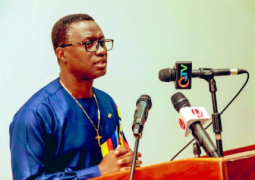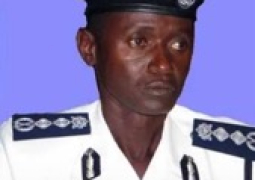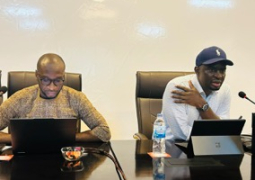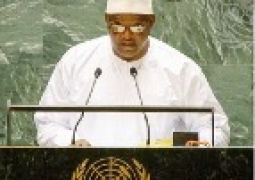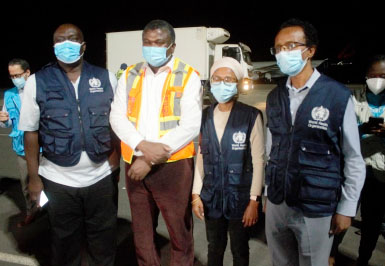
The briefing was held at Ministry of Health at Quadrangle in Banjul. The team, led by Dr. Nonso Ejiofor, World Health rep. in Eritrea, was on an important mission to assist the country in strengthening its level of preparedness and response to public health emergencies.
Also, during the visit, the team had the opportunity to interact extensively with relevant government institutions and stakeholders with a view to mapping out some of the existing lapses in the country’s health sector as well as to come up with measures to address these challenges.
Giving a synopsis of visit, Jaine Maina, World Health Organisation rep. in The Gambia, first congratulated the team for a resounding successful four-day mission in The Gambia to help support the country in reaching this important milestone.
She revealed that the initiative is a collaborative work and as part of their roadmap, they were able to identify core priority areas, which “if successfully achieved”, the country would stand a better chance to respond to current, emerging and potential emergencies in the country.
Dr. Nonso Ejiofor, World Health rep. in Eritrea, who led the team, gave a brief account of their mission in the country, saying the mission encapsulates one key agenda, which is to work with the government of The Gambia in strengthening public health emergency capacities and to be able to prepare, detect, respond and recover in emergencies.
Dr. Ejiofor made reference to the high-level commitment made in August of 2022 by Minsters of Health of WHO member-states in the Africa region to the effect of endorsing a regional strategy for health security at its 72nd Session of the WHO regional Committee meting held in Lome, Togo.
“Therefore, in actioning this, WHO Africa Region, Public Health Emergency Programme in collaboration with African CDC conceptualise a three-in-one initiative, focusing and making in-roads in strengthening country’s capacity for health security.”
He reminded that in terms of health security there are three key pillars, emphasising that early treatment is critical to effective response and recovery.
Dr. Ejiofor maintained that operation support and logistic is the baseline in view of the fact that for all of that to effectively function, there is need for better approach to basic support.
He revealed that during their stay in the country, they had interaction from diverse actors and also observed very strong political commitment and willingness with regard to strengthening the country’s health security.
Dr. Ishata Conteh, team lead, Emergency Management Support Unit, World Health Organisation, Africa Region, made a power point presentation, where she dwelled on some existing loopholes they have discovered and proffered solutions to address them.
She also spoke about the gains made by The Gambia in its health emergency response plans compared to other countries they have already visited.
She disclosed that during their engagement with stakeholders, the engagements didn’t only revolve around health but also environment as climate change is real.
Babanding Sabally, deputy permanent secretary, Technical at the Ministry, also made some invaluable contribution and thanked the visiting delegation for a comprehensive report despite the short visit.
Adama Drammeh, deputy permanent secretary at the Ministry of Health, thanked the delegation for their comprehensive outline of the report they were able to compile during the four-day scooping mission.
She assured that they have received all their recommendations and ideas and would work towards actualising it in strengthening the country’s health system.
Abubacar Jah Jr. permanent secretary at the Ministry, who chaired the session, expressed similar sentiments. PS Jah thanked the WHO mission for their dedication and efforts in identifying some of the areas that need adjustment.


